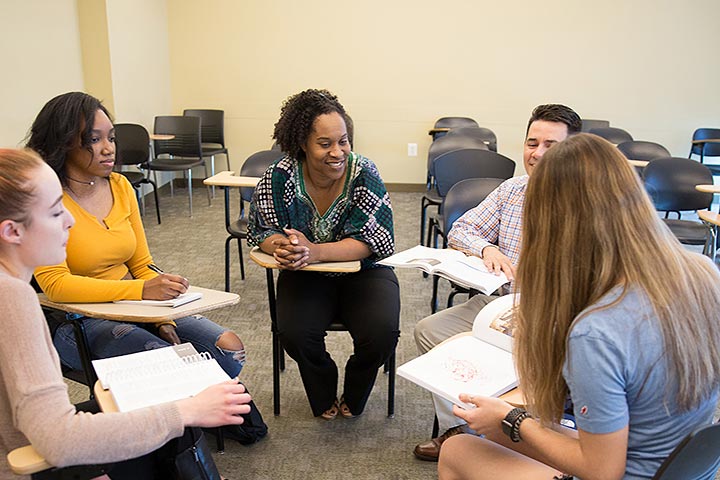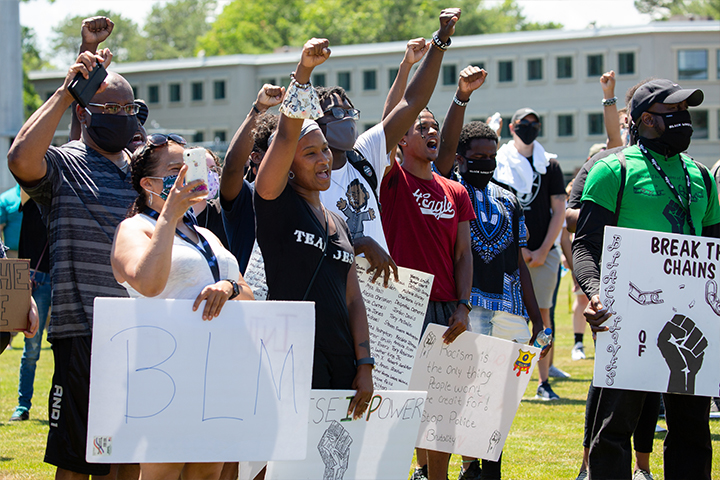Stockton Takes the Lead on Social Justice Education
By Diane D'Amico

By Diane D'Amico

In July 2020, the Stockton University Board of Trustees passed a resolution vowing to make Stockton a leader in social justice issues.
The University will take a major step in that direction in the fall, when all new students will be required to take two courses that address race and racism before graduating.

Over the years, Stockton has become increasingly diverse, with almost a third of all students identifying as Black, Asian or Latinx.
The new requirement developed as the country grappled with the murder of George Floyd and other Black individuals, anti-Asian attacks, and the public demonstrations that followed.
For faculty, there was a realization that students do not have a true understanding of slavery, racism and their continued impact on the history and future of the United States. In a document called “The Other Stockton” faculty and staff of color shared personal accounts of discrimination, micro-aggressions and exclusionary behavior they have experienced.
MichelleMcDonald, chief academic officer for Atlantic CIty and associate vice president for Academic Affairs, asked Professor of Africana Studies and Communication Donnetrice Allison to take on the role of Director of Strategic Initiatives and help create change.
“As a respected faculty member, and former president of the Faculty Senate, I knew Donni would bring insight and leadership to this important issue in a way that would be embraced by the Stockton community,” McDonald said.
The result was the proposal for the course requirements that would address historical omissions and misunderstandings and generate discussion.
It is important that our students leave our institution not only with strong writing and quantitative reasoning skills, but also with a knowledge and understanding of the racist history that continues to plague this nation and the world,”
“It is important that our students leave our institution not only with strong writing and quantitative reasoning skills, but also with a knowledge and understanding of the racist history that continues to plague this nation and the world,” Allison said in her proposal for the new requirement. The proposal further argues that such knowledge and understanding “will help our alumni become part of the solution.”
The proposal was approved by the Faculty Senate and endorsed by the Stockton Board of Trustees in May.
Allison said it is crucial that the courses reach every student.
“This can’t just be for students who want to major in the subject,” Allison said. “This is something everyone must understand if we are to eradicate racism and promote equity and diversity. You have to understand the history to support change.”
The R1 requirement would make race and racism the focus of the class. Examples include Race and Politics, The History of Black Education and A History of Black Protest and Civil Unrest.
The R2 requirement will incorporate race into another subject area, such as business, marketing, science or literature. About 25% of the class will include discussions on how race and racism are enacted within that subject area.
To date about 25 courses have been identified that already meet the criteria and more are being developed. About 20 faculty members have experience teaching about race and racism.
“One course alone will not be effective,” Allison said. “If we are ever to address the racial issues this country continues to grapple with, students need to understand that there are levels to racism and that to some degree it is within every field of study.”
Stockton has offered Africana Studies as a minor since 1983. An Africana Studies major launched in Fall 2019 and graduated its first student in May 2021